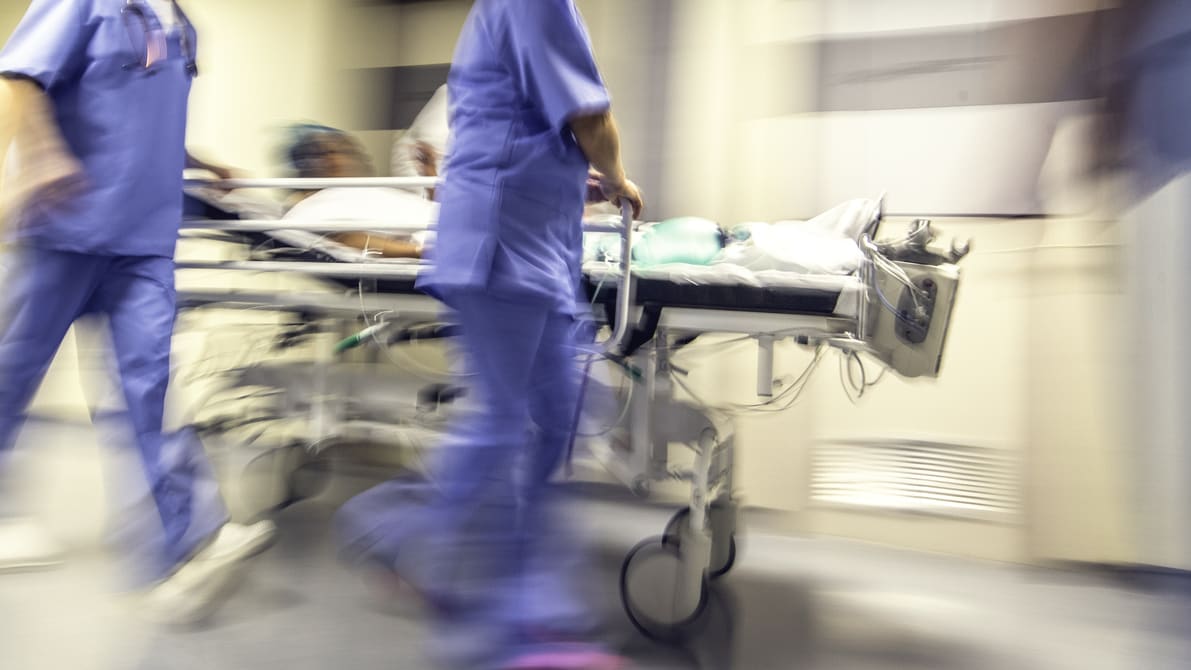State workers' compensation statutes usually won't cover workers who contract coronavirus, except those few workers who get the virus as a natural consequence of their jobs. Washington state's Gov. Jay Inslee made doubly sure such few workers are covered.
On March 5, Inslee, a Democrat, and Joel Sacks, director of the Washington Department of Labor & Industries (L&I), announced that the state would take steps to ensure workers' compensation protections for health care workers and first responders who are on the front lines of the COVID-19 outbreak. Under the new policy, L&I will provide benefits to these workers during the time they're quarantined after being exposed to coronavirus on the job.
"These health care workers and first responders are protecting our communities," Inslee said. "They need to know that we have their backs. This is the right thing to do."
L&I encouraged employers to continue to pay workers who are quarantined after being exposed to the virus. Quarantined workers who continue to be paid by their employer may not need to file a workers' compensation claim.
L&I noted that even before March 5, its rules provided for workers' compensation coverage if health care providers and first care responders became sick in connection with their job duties.
Workers in Washington state can file a workers' compensation claim up to two years after being exposed to a disease at work. The expanded coverage took effect immediately and applies to workers already under quarantine.
"I anticipate that other states may follow this lead," said Bob Robenalt, an attorney with Fisher Phillips in Columbus, Ohio.
Coverage for Health Care Workers and First Responders Elsewhere
Outside the state of Washington, there is no certainty that all health care providers and first responders will be able to obtain workers' compensation coverage," Robenalt said. "However, in many states, it is likely that coverage will follow if these classifications of workers become infected after exposure to the virus as a part of their job," he added.
There still will have to be evidence of a work-related exposure. But if the exposure is documented, the likelihood is that claimants in these positions will be able to successfully argue that their jobs put them at greater risk of exposure of the virus than the general public. "These occupations reflect that people will have more contact with infected patients or other exposure to the virus," he said. But he noted that employers may challenge any finding of causation.
For example, if someone got the coronavirus from a social visit to a theater, concert or religious gathering, workers' compensation would not cover it, noted Jon Gelman, an attorney with Jon Gelman Law Office in Wayne, N.J.
[SHRM members-only how-to guide: How to Administer a Workers' Compensation Claim]
Less Chance of Coverage for Other Workers
Workers who aren't in health care may have a more difficult time claiming workers' compensation. They will need to show that their jobs put them at greater risk of contracting the virus.
"But where there is an outbreak of the virus at a plant or facility, there may be some argument to support coverage for certain workers," Robenalt said. For example, the receptionist and cleaning staff at a health care facility where the virus has become rampant may argue that they are at a greater risk of contracting the virus due to their jobs.
"In general, individuals that have to be around those who are sick can say that their job is what resulted in contracting the virus," said Christopher Boggs, executive director of risk management and education for the independent Insurance Agents & Brokers of America Inc. "Other employees, it depends on the facts."
Nonetheless, the more widespread COVID-19 becomes, the more difficult it may be for an employee to show that it is work-related rather than an ordinary disease of life to the public, according to Texas Mutual Insurance Co. in its frequently asked questions for employers about coronavirus.
States differ considerably on their rules for compensability, cautioned John Burton Jr., professor emeritus for Rutgers University and Cornell University, who lives in Princeton, N.J.
Moreover, while a few states apply the test of whether a disease arises out of and in the course of employment to determine if it is compensable, many states instead have a list of compensable diseases in their workers' compensation statute, he said. "Surely coronavirus is not going to be in the list," he said.
New York courts have interpreted "occupational diseases" to include only diseases that are a natural consequence of being in a particular occupation, he said. Using that test, Burton believes few workers would be covered by workers' compensation statutes.
South Carolina's workers' compensation statute provides that no disease will be considered an occupational disease if it is a contagious disease resulting from exposure to fellow employees or a hazard the worker would have been equally exposed to outside of work, noted William Oncken, an attorney with Turner Padget in Columbia, S.C.
In Virginia, it will be an "uphill battle for anyone filing a state workers' compensation claim" to show the coronavirus resulted from work, said Megan Caramore, an attorney with Vandeventer Black in Norfolk, Va.
Federal Workers' Compensation Statutes
But Caramore cautioned that there are many workers' compensation schemes, and coverage may be easier for workers to obtain under other laws, such as the Longshore and Harbor Workers' Compensation Act. This law provides for the payment of compensation, medical care and vocational rehabilitation services to workers disabled from on-the-job injuries that occur on the navigable waters of the United States, or in loading, unloading, repairing or building a sea vessel.
In addition, the U.S. Department of Labor Office of Workers' Compensation Programs Division of Federal Employees' Compensation has announced that a federal employee who contracts the coronavirus while in performance of their job duties would have full coverage of the Federal Employees' Compensation Act for related medical treatment and for wage loss or disability related to that condition.
Was this resource helpful?




